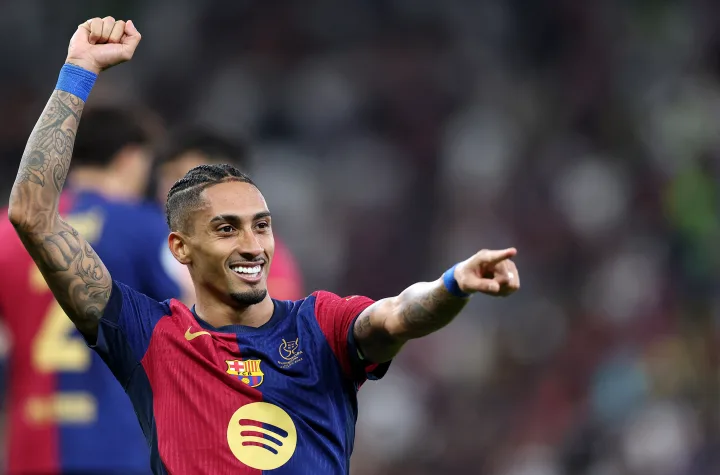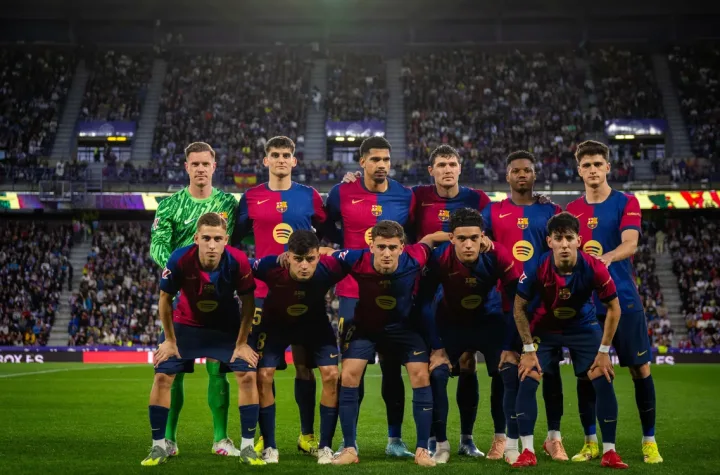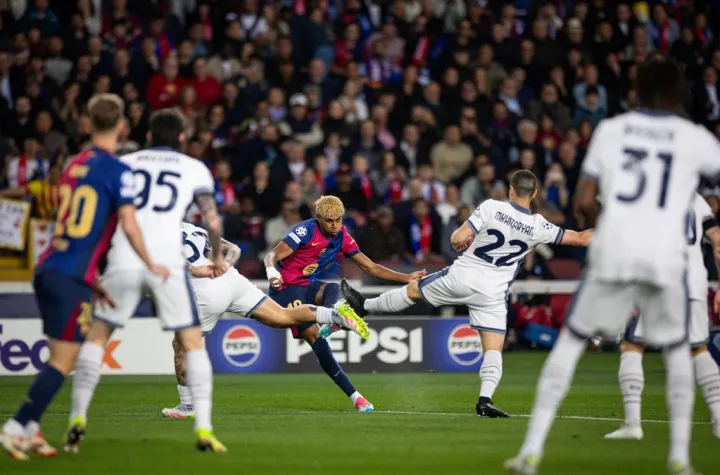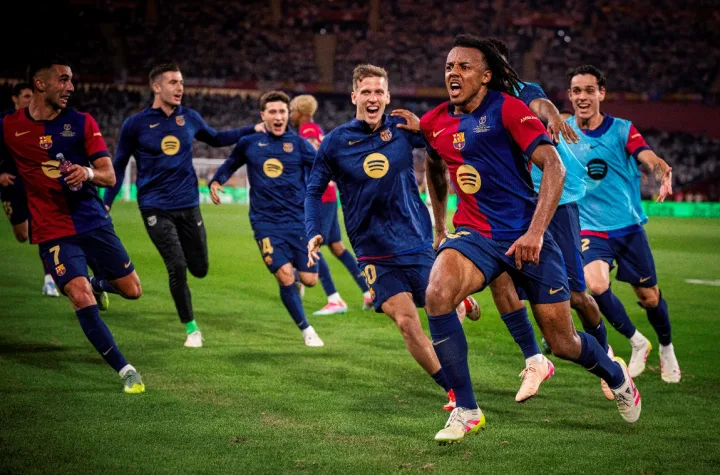
Barcelona Femení goes into January 2025 with the primary target of getting some forward momentum – or clarity, at least – on three key renewals: Keira Walsh, Ingrid Syrstad Engen, and Irene Paredes. This comes as Walsh has indicated that she will leave the club on or before expiry of her current contract in June, as Engen is struggling for minutes despite growing prominence, and as Paredes has seemingly dropped from prominence despite her consistency and leadership.
There have been suggestions from the wider Catalan media circle that, if no progress is made, all three could be up for sale in January. This is almost certainly not going to happen, for various reasons. Though the club put a pin in Engen’s renewal earlier in the season, the time for action has come, and the club feels confident that she wants to stay.

Foreign interest in Engen may not be from large clubs; the biggest club that needed a ball-playing center back, her role since the start of 2024, was Manchester City. But Blaugranagram was told that despite City seeking depth, they are not specifically looking for a player equal to Alex Greenwood to replace her while out injured. And since City signed German defender Rebecca Knaak on January 1st, their search in that area seems confirmed to not include Engen. It’s unlikely other clubs, including apparently from her home country of Norway, would make convincing sporting proposals to draw her away from Barcelona.
It is also unlikely Paredes would seek out a different opportunity, with her family settled in the city and fewer teams wanting a stop-and-block center back of her profile at the moment.
Moreover, Barça Femení would not put themselves in a position where it could lose all three players. Between them, there are two defensive midfield options and two center back options, positions that the team has little top-tier depth in if they were to go. Replacing one world class player, for a team that demands commitment to a system over stardom, is hard enough – three would be disruptive if not impossible.

And even just the one seems unlikely in January, as despite some large offers, Barcelona are incredibly reluctant to let go of Walsh, her importance within the squad being more pronounced in the back half of the season.
Marc Vivés and his team may need to pay attention for the clarity they are seeking on the matter; entering the last six months of her contract on January 1st, Walsh would now be able to sign a pre-contract with an English club, effectively promising to join them for free at the end of the season and preventing other deals from being done – including an increasingly-elusive renewal that Barça are still wanting to push for. The transparency of Walsh’s team so far in the process of contract discussions would give Barça hope that any pre-contract in the WSL would either be forewarned or not happen, but on a player’s side, it does offer stability and certainty, which is a draw before going into a major tournament over summer and what will likely be a busy summer transfer season in Europe.
The potential for January’s transfer business for Barça Femení to be all or nothing, so to speak, then is that in the unlikely case of Walsh leaving, this would be through her €3 million release clause being triggered. And this is because, as previously elaborated, the club is in the uncommon position of much of their transfer business revolving around if and when Walsh goes or stays. As it stands, they are not in a particular position of need for any role, nor do they have a lot of money to spend – but both things would change with a January departure.

Barcelona is in the unenviable position of deciding whether to take a major payday from either Arsenal or Chelsea, who are both still in hot pursuit of Walsh, or to retain an integral Champions League player and wait until summer before shaking up the team – though the intention is that if she does leave, it is after the season, for the benefit of the team.
This is partly because any Walsh replacement will, ideally, not need to be a proper replacement. The team currently has one starting midfielder too many, with the glorious return of Alexia Putellas and Walsh not lacking in quality. While there has been media noise on both sides of the Bay of Biscay about Walsh losing prominence at Barcelona, this comes based on a contrast from being the team’s most reliable player at the start of the season to not starting against major Spanish rivals in more recent months, and due to new head coach Pere Romeu not successfully managing a midfield four.
However, noticeable before he said it, and as explained by Romeu, Walsh is not considered as a back-up for Patri Guijarro, but as a different stylistic option – as can be seen with neither generally being a substitute for the other when playing different minutes. While Patri can defend, when she plays in the midfield she is attack-minded, a pure deep-lying playmaker and less of a defensive midfielder. This works incredibly well in Spain, where there are fewer teams who can drop a ball in behind and launch a rapid counter attack, Barça sacrificing a defensive outlet they scarcely need for complete attacking overload.

Romeu has opted for Patri more in domestic competitions because of this (notwithstanding that Walsh can also take up such as role, as demonstrated against Madrid CFF) – where Walsh exceeds every other Barcelona Femení player, however, is positional defending, something that Romeu has also highlighted. This, an ability to find a magical spot on the pitch where one is always able to receive the ball and also to cause opposition headaches in progression options, is something invaluable to Barcelona when facing teams in the Champions League who have a more intense attack.
Losing Walsh in January would not strengthen any direct European competition for the time being, but it would significantly weaken Barcelona. It’s to be noted that, prior to Walsh, Barcelona was most successful in the Champions League when Patri was playing at center back, focused on her defensive game.
Barça won’t want to lose Walsh with little notice, and thus a lack of opportunity to instate an amended system and a ‘true’ back-up in the deep midfield. This almost rules out a January departure, something that may have been different had María Pérez still been at the club. If Pérez was an option to step up, they would have still been losing their purest DM, but a double pivot of two players already familiar with the club would have been a sustainable substitution.
Now, should Walsh go, Barcelona Femení would have no time to waste in either elevating one of their youth players (likely Sydney Schertenleib or Emilia Szymczak) to the job or bringing in someone new as a stop-gap until Schertenleib or Szymczak are ready. The cash influx would be an unexpected boost that would likely help get renewals across the line promptly, and any replacement player needed would be affordable.
‘Nothing’, at least nothing major, happens with Barça’s transfers should Walsh stay, but ‘all’, new signings in new styles, could happen if she goes.





More articles
Key stats ahead of Inter – Barça clash
A rotation squad gets Barcelona closer to the LaLiga title
Lamine Yamal shines in the Champions League semi-final